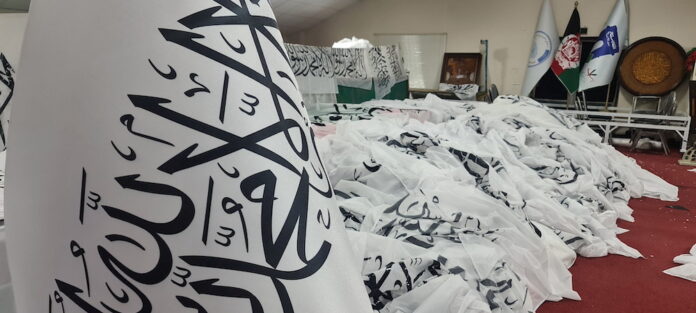Beyond the talks within the Council, the definition of the UN’s role in Afghanistan will depend in part on the goodwill of the Taliban, who took power in August and are seeking international recognition. — Social media handout via Reuters
NEW YORK, Feb 5 — The UN Security Council will soon launch negotiations on the world body’s future role in Taliban-ruled Afghanistan, after a report from the organisation’s chief called for dialogue and advised against isolating the extremists.
Led by Norway, which recently hosted landmark talks between Western diplomats and Taliban officials in Oslo, the negotiations are expected to be “very tricky and very difficult,” said one UN ambassador under condition of anonymity.
The envoy, who represents a country currently on the Security Council, added that the West wants “to make sure (that) particularly women and girls are not sidelined in that discussion.”
But on the other side, China and Russia — both veto-wielding council members — could attempt to minimise the impact of human rights issues on the future of the United Nations Assistance Mission in Afghanistan (Unama), the envoy suggested.
Another diplomat who asked not to be named said that “consensus” could be found on the issues of humanitarian aid and combatting terror groups in the war-wracked South Asian country.
That same diplomat said “differences” could crop up between those who want to see “cooperation with the Taliban (Beijing and Moscow) and those in the West who support a “tough approach” to extract concessions from the hardline Islamist group.
The mandate for Unama, which has been present in Afghanistan since 2002, expires on March 17.
Recognition?
Beyond the talks within the Council, the definition of the UN’s role in Afghanistan will depend in part on the goodwill of the Taliban, who took power in August and are seeking international recognition.
So far, no country has obliged, but Foreign Minister Amir Khan Muttaqi, who attended the Oslo talks, told AFP in an interview this week that the regime was inching closer to earning foreign recognition.
The new government in Kabul has so far failed in its efforts to assume the country’s seat at the world body, with the nomination of its new ambassador, former Taliban spokesman Suhail Shaheen, still in limbo.
The process of both recognising the government and subsequently accepting its new UN envoy has been frozen at the world body in a deal reached by the United States, Russia and China.
In a report published this week, UN Secretary-General Antonio Guterres called for a one-year renewal of Unama’s mandate.
Offering the reasons for his suggestion, Guterres noted: “With the Taliban not having established the trust of many of the Afghan people or convinced Afghans of its capacity to govern, many continue to seek to leave their country.”
“The best way to promote stability and future international support is for the Taliban to avoid the isolation that characterised its previous experience in power,” he added, referring to the 1996-2001 regime.
“Developing a constructive dialogue between the de facto authorities, other Afghan stakeholders, the region and the international community that is focused on the wellbeing and rights of the Afghan people is therefore essential.”
Call for ‘Human Rights Service’
Guterres highlighted the need to address Afghanistan’s economic and financial paralysis since the Taliban took over, with more than half of the country’s population of roughly 38 million expected to face food shortages this winter.
For months, he has called for sanctions relief for Kabul, in order to avoid the nation’s complete collapse. Nearly US$10 billion (RM41.7 billion) in Afghan state assets held abroad have been frozen by Washington since August.
“It is critical that this dialogue address the broad range of issues related to governance — including fundamental human rights and freedoms — that will have a significant impact on the prosperity and security of the citizens and future of Afghanistan,” including its ties with the international community, Guterres said.
The UN chief’s report includes several recommendations, including the need to “work with all actors to promote effective, responsible and inclusive Afghan governance and society while advancing reconciliation.”
He says that Unama’s primary objective should be to “coordinate and enable the provision of essential humanitarian assistance,” advising on implementation of international human rights law, and reporting “human rights violations and abuses.”
Guterres says the future UN special envoy to Afghanistan will need to work on both governance and humanitarian aid.
He suggests the creation of a “Human Rights Service” within the mission that would “provide impartial reporting and engagement with all stakeholders at the national and subnational levels.”
Guterres also says the mission should continue to work on demining, and that its regional and provincial field offices should be kept open to enable nationwide outreach.
Unama should also maintain its liaison offices in Pakistan and Iran to facilitate regional cooperation efforts.,” the secretary-general said. — AFP


